All lawyers visiting us: experts from 27 countries gather at Kazan Legal Forum
The rejection of the “matryoshka system”, the fight against the “intellectual cudgel”, the aspirations of developers: what the Kazan International Legal Forum discussed
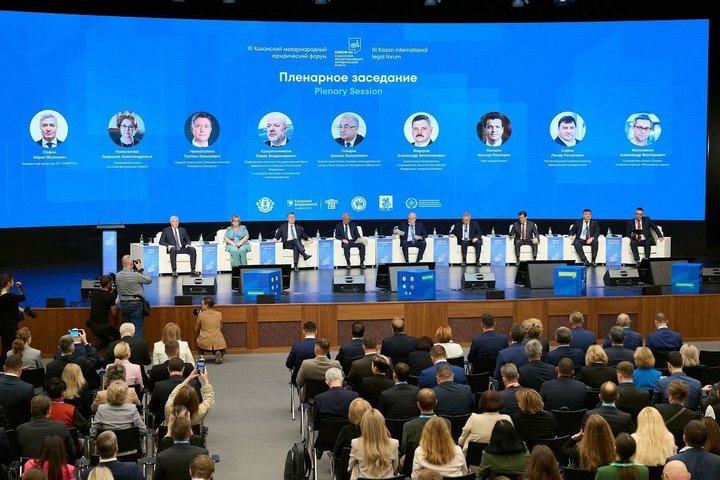
On September 26-27, Kazan hosted the III Kazan International Legal Forum, a large-scale meeting of lawyers, legislators and law enforcement officers from 27 countries and 50 cities of Russia. Fifty-one discussions on various issues of modern law took place on its margins. What is a “matryoshka system” of management, whether criminal liability will be introduced for legal entities, why in Russia it is necessary to bring environmental standards to international standards, how to deal with the “cudgel” in the hands of copyright holders — all this was discussed at the plenary session. A little later, the experts discussed the construction sector — for example, Ilya Wolfson, as a member of the Duma Committee on Construction, Residential and Utilities Services, spoke about the work on the strategy for the development of the industry until 2030 and the mechanisms for the integrated development of the territory. Nail Galeev, CEO of SMU-88 Group of Companies, expressed the general pain of developers, whose sales fell to 40% in two months, and proposed introducing mortgage benefits for new categories of Russians.
“We are against the criminal liability of legal entities!”
The forum, which was attended by 1,200 lawyers from 27 countries, opened on September 26 with a plenary session. First Deputy Prime Minister of Tatarstan Rustam Nigmatullin read a greeting from the rais of the Republic of Tatarstan, Rustam Minnikhanov, to the guests of the forum. In it, the head of Tatarstan expressed the hope that the discussions at the forum would reveal the latest trends in the development of law, adapt existing practice to new realities, and outline tasks for the future.
Ilsur Metshin, the mayor of Kazan, recalled that at previous forum, an initiative was put forward to create an Association of BRICS Cities, whose meeting took place this summer — 200 delegates from 20 countries of the world, including Brazil, China, Chile, South Africa, participated in it. The association is to unite more than 18,000 cities.
Rector of the Kazan Federal University Lenar Safin represented the hero of the day — Kazan University turns 220 this year, it has developed one of the oldest law schools in Russia over two centuries.
The deputy chairman of the Investigative Committee of the Russian Federation, Colonel General Alexander Fedorov, discussed the liberalisation of criminal legislation. An interesting discussion unfolded about that criminal liability of legal entities has not yet been introduced in Russia. This, in turn, could mitigate the liability of individuals, while at the same time providing compensation for damages.
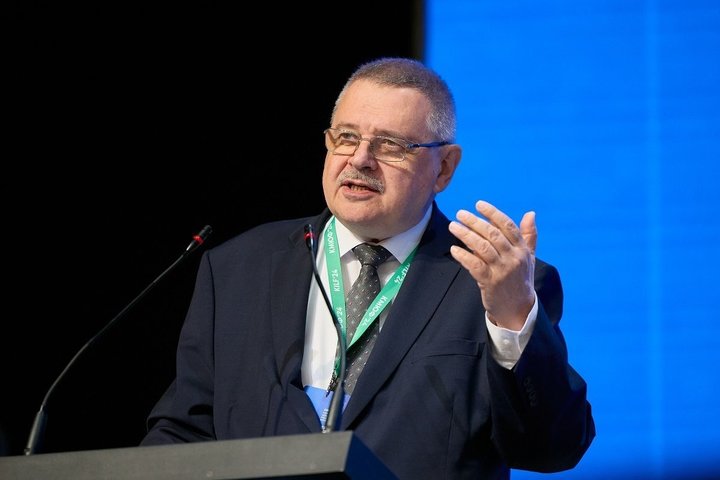
“Already in more than 90 countries of the world, there is a legislative consolidation of criminal liability of legal entities in one form or another," said Fedorov. “The application of criminal sanctions to legal entities often makes it possible to mitigate the liability of individuals. At the same time, compensation for damage to victims and environmental damage is provided. It seems interesting and promising to discuss the criminal liability of legal entities. Business representatives showed great interest in this topic!
However, head of the State Duma Committee on State Construction Pavel Krasheninnikov replied:
“We are against the criminal liability of legal entities! The current legislation already contains the possibility of fines for legal entities and other penalties under the Administrative Code. Our courts are overloaded, the legal proceedings require some kind of relaxation. . Therefore, we believe that if we can do with the Administrative Code, then we need to do with the Administrative Code.
Alexander Fedorov did not give up — he promised that the discussion would continue.
“Filtering” of toughening amendments and the fight against “matryoshka system”
The international presence at the presidium of the plenary session was provided by Akmal Saidov, the first vice-speaker of the Legislative Chamber of the Oliy Majlis of the Republic of Uzbekistan, director of the National Center of the Republic of Uzbekistan for Human Rights. In his brief speech, he drew attention to the fact that modern law was undergoing complex and dynamic changes. Akmal Saidov reasoned that the search for a compromise between the principles of state sovereignty and the desire of countries for broader integration with other states requires flexibility and adaptability, and the global role of the state in the modern world is being transformed.
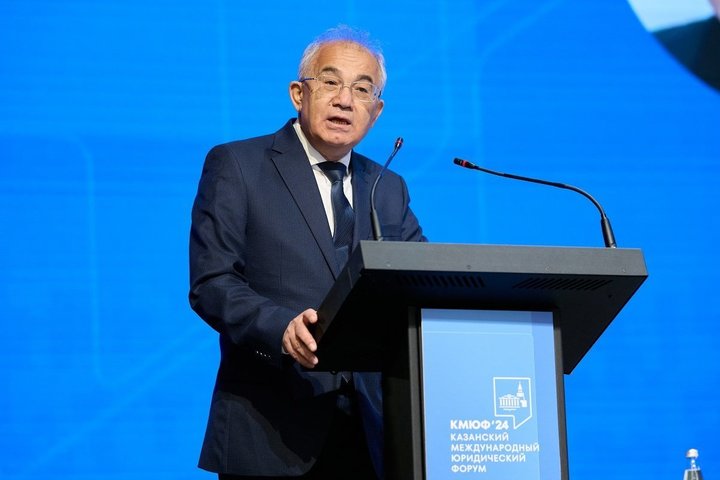
Pavel Krasheninnikov, the chairman of the State Duma Committee on State Construction and Legislation, noted in his speech that last year only four new laws were introduced into the Civil Code. But as many as 15 amendments appeared in the Criminal Code, and all 37 in the Administrative Code!
The head of the relevant State Duma committee told what lawmakers are working on now: there has been a global discussion on reforming inheritance law, which has been going on for more than 20 years. Recently, a debate has begun about what a notary should be in Russia and whether there will be a lawyer's monopoly on court appearances (the committee's position is that it should not be, and a law degree from an accredited university and citizenship of the Russian Federation will be enough to represent in court). Legislation on deepfakes will be discussed separately, because scammers have gone so far as to fake even a voice over the phone.
The discussion of the draft law on the organisation of local self-government continues. This law has already been adopted in the first reading, and 744 amendments have already been submitted to it.
“The draft law proposes an updated model of organising the activities of local government, simplifying it, minimising the “matryoshka system” (when another one works inside one body). We propose to introduce three types of municipalities: urban, rural and federal cities," Krasheninnikov said.
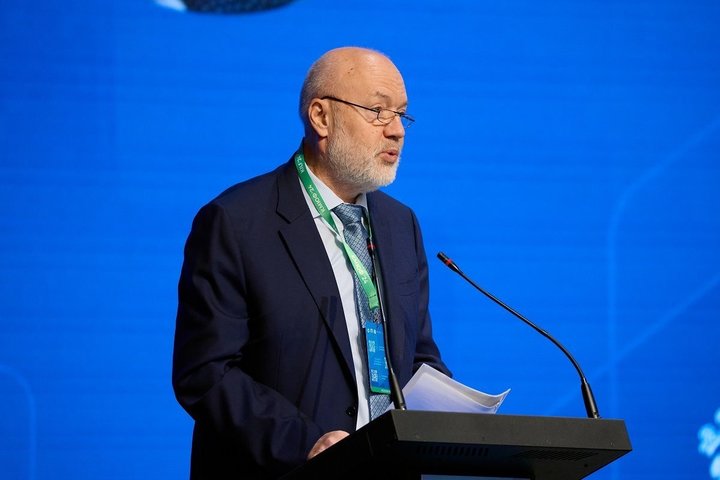
Compensation for intellectual property infringement as a “cudgel” in the hands of copyright holders
Lyudmila Novoselova, the chairperson of the Intellectual Property Court, noted a steady increase in the number of copyright cases in Russia (by 20% per year). According to Novoselova, this growth is a positive signal indicating that the market and the sphere are developing. The Chairman of the Intellectual Property Court is particularly pleased with the increase in the number of cases related to patent protection. At the same time, the field of intellectual property law is one of the most peaceful in the legal segment. Participants in such cases are ready to enter into amicable agreements — both pre-trial and in court. More than 20% of such court cases end amicably. But it is also far from being completely rosy in this sense:
“The most painful question is what compensation for intellectual property infringement is and how it should be claimed and collected. The tool is interesting and effective. But due to some provisions in the legislation, it began to be used by some copyright holders as a kind of cudgel. The measures of responsibility, which are calculated according to formal criteria, significantly exceed the required level of responsibility. We receive negative signals from businesses, and the Constitutional Court has repeatedly drawn attention to the need for adjustments. Now it's up to the legislator when they have their say. But there are still no changes in the legislation," Lyudmila Novoselova said.
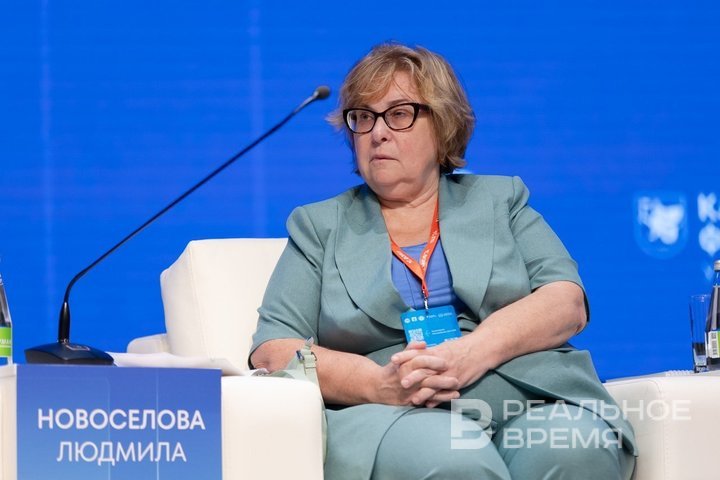
Businesses ask to take a closer look at regulatory and environmental issues
Tatarstan's big business presented interesting speeches at the plenary session. For example, director general of Kazanorgsintez PJSC, Airat Safin, spoke about pressing business problems. For example, he asked if the law was ready to introduce digital tools. Besides, he told me that, despite the moratorium on inspections of enterprises, this restriction is overcome by checking complaints. But complaints are sometimes filed by unscrupulous applicants. The speaker suggests discussing the possibility of not accepting repeated complaints from the same persons if their arguments have not been confirmed earlier.
And Dmitry Medvedev, the head of the legal department of Tatneft PJSC, suggested taking a closer look at the definition of calculating the carbon footprint of enterprises — according to him, Russia is not excluded from the international agenda, while the cross-border transfer of the carbon footprint takes place. In our law, these issues are not detailed: the carbon unit in Russia is not identical to that in Kazakhstan or, for example, in China. And in the future, according to Medvedev, legislators will have to deal with this.
“Reducing the carbon footprint is a common good. This trend is becoming more relevant every day. After all, it is impossible to differentiate the air, we all breathe the air of the same planet," Medvedev said. “Therefore, it is necessary to solve the issue of regulating the carbon footprint in the international arena!”
Developers propose to expand preferential mortgages
Fifty-one discussions took place on the sidelines of the forum. They discussed topical issues of various industries. For example, interesting discussions took place during the session “Improving the regulatory environment in the construction industry: balancing the interests of the state and business”. Representatives of the legal, legislative sectors and participants of the construction market gathered here. This discussion was moderated by Mark Geller, the chairman of the Committee for the Construction of OPORY ROSSII, chairman of the board for disputes in the construction of the Arbitration Centre at the Russian Union of Industrialists and Entrepreneurs (RSPP).
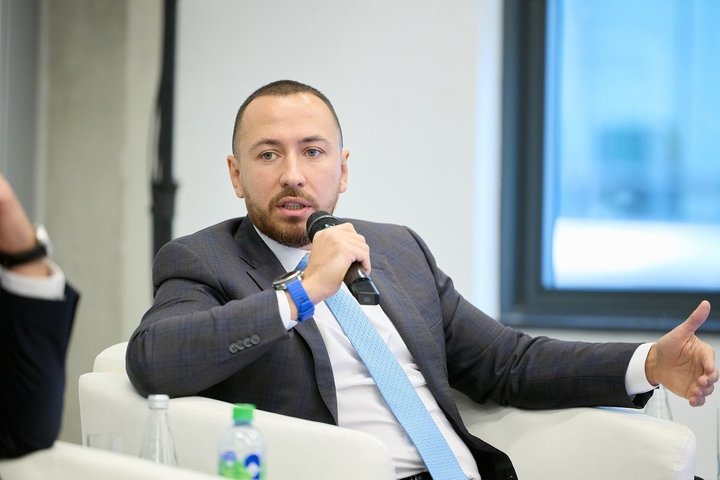
Nail Galeev, a representative of the industry, director general of SMU-88 Group of Companies, made a prominent speech. It was called “How the key stake today threatens to disrupt Putin's instructions” — and, judging by the contents of the report, the catchy title is quite true. Nail Galeev drew the attention of the audience to the fact that developers see a 25-40% drop in sales — this is the result of an increase in the key rate combined with a sharp narrowing of preferential mortgage programs. At the same time, the construction industry has a plan to enter the number of square meters in our country, which is increasing every year. And it's getting harder and harder to achieve this plan.
Fight against the “banking slavery” of developers and dilapidated networks
Ilya Wolfson, a deputy of the State Duma of the Russian Federation from Tatarstan, spoke about how the work of the Duma Committee on Construction and Housing and Communal Services is currently underway. According to him, much has been done over the past three years to harmonise the construction market.
Together with the Federal Ministry of Construction, active work is underway on a strategy for the development of the construction sector until 2030. A mechanism for the integrated development of territories is being actively worked out — more than a hundred amendments have already been made to the relevant legislation. This law applies to private housing construction, agricultural land, and the obligations of developers to provide all related infrastructure, and much more.
“I think several round table discussions and meetings on this topic will be held during the autumn session. It will be necessary to take into account the interests of all parties, but first of all the interests of our citizens," said the State Duma deputy.
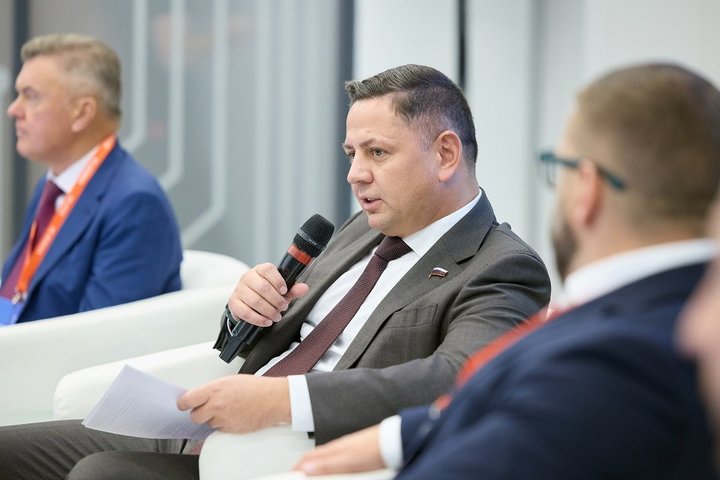
Next, Wolfson touched on the topic of banks — he talked about the abolition of “bank slavery” in escrow accounts. The committee wants to propose that the developer can safely switch between banks during the life cycle of the project. This can be done now, but the process is fraught with a lot of difficulties and procedural obstacles.
Together with the Ministry of Construction of the Russian Federation, an initiative is being worked out on how to build more schools and kindergartens without straining the budget. According to the deputy, the proposal of the rais of Tatarstan on the introduction of special accounts for housing developers under the guarantees of the regional budget can be a solution to the problem of a critical shortage of social infrastructure.
The work continues on factors artificially constraining the pace of construction, for example, issues with sanitary protection zones are being resolved.
The Improving the regulatory environment in the construction industry: balancing the interests of the state and business session brought together representatives of the legal, legislative sectors and participants in the construction market.
The Duma is working on optimising standards for educational institutions, on the regulation of the tax base, and on many other draft laws and amendments in the field of construction. At the end of Wolfson's speech, moderator Mark Geller recalled that bills on state registration of real estate, on master plans of territories and many, many others were overdue. In short, deputies will definitely not be bored in the coming years.
Over three years, the holding of the International Legal Forum in Kazan has become a good tradition.